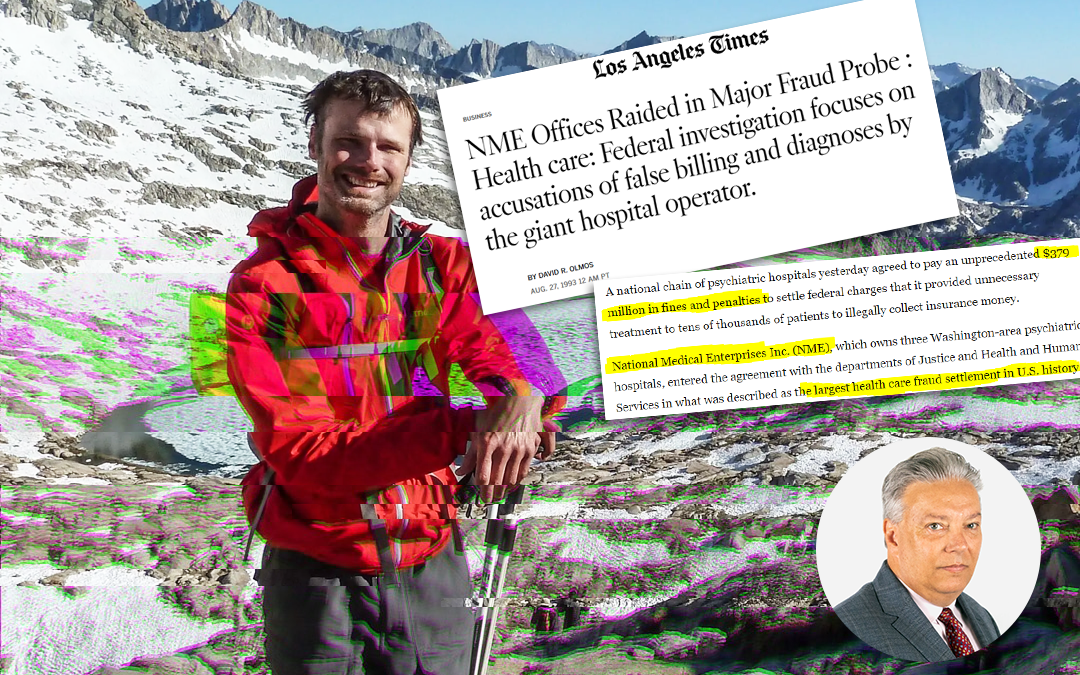“After 11 months of largely sitting alone in his room undergoing what the hospital called “Chair Therapy” (sit and think about your life) he left that hospital a broken teenager.”
Return on investment is a calculation that Special Investigations Units, health plans, CMS and others involved in program integrity have tried to define for many years. With different methodologies and definitions of criteria, it seems that everyone has a different approach to measuring their financial success at fighting fraud, waste and abuse.
Advize Health will be working with several payers and plans in the near future to create some common ground in this area but, frankly, in light of a recent Washington Post article titled “When I Was 15, a Psychiatric Hospital Nearly Ruined My Life. This Advice Saved Me.” (Alternative 1: MadInAmerica.com, Alternative 2: wvnews.com), any effort to define and calculate financial ROI pales in comparison to the true impact of rooting out healthcare fraud, waste and abuse.
The Post article was not about fraud; or even really about health care. It told the redemption story of a young person who spent 11 months in a locked psychiatric ward after his guidance counselor needlessly referred him for inpatient care in 1987.
After 11 months of largely sitting alone in his room undergoing what the hospital called “Chair Therapy” (sit and think about your life) he left that hospital a broken teenager. The article went on to explain how this young man rebuilt his life and found a lifestyle that makes him happy. It was a potential tragedy that evolved into a happy ending because of the spirit of the individual.
So, where does ROI come into play? Well, that psychiatric hospital was one of over 80 owned and operated by National Medical Enterprises (now Tenet Health). These hospitals, known collectively as the Psychiatric Institutes of America, were the subject of a national multi-agency Department of Justice investigation.
“I authored the affidavit for the warrant, and can, without a doubt, say that the story of that teenage boy highlighted in the Washington Post exemplifies the conduct and mindset of the hospital group.”
The allegations in this case were many but the central focus was the hospital chain paying kickbacks to Magistrates, physicians, guidance counselors, EAP counselors and others in return for referring patients to the hospital. Whether those patients needed hospitalization or not was not a concern. Other charges were related to stock manipulation, cost report fraud and tax fraud.
I was the HHS Office of Inspector General case agent assigned to the national case (others were assigned to cases against individual hospitals). As such, I worked with Agents from the FBI, DCIS, IRS, Postal Inspection Service and other agencies to gather the evidence that allowed us to execute several dozen simultaneous search warrants at the hospitals and the NME headquarters.
I authored the affidavit for the warrant, and can, without a doubt, say that the story of that teenage boy highlighted in the Washington Post exemplifies the conduct and mindset of the hospital group. The search warrant at the headquarters involved several hundred agents from in and around the DC area and lasted several days. The review of the evidence gathered from the search took several months. The effort was worth it.
The Department of Justice reached a global settlement with a subsidiary of NME that involved a guilty plea to several kickback and health care fraud counts and a then record $379 million civil settlement. Across the country there were guilty pleas and convictions of hospital administrators, referral sources and corporate officials.
All of those things can be considered ROI, but, to me, knowing that the work of these hundreds of agents and attorneys stopped this company from ever taking advantage of any more people like that young man in the article is the only return on investment that truly matters.
Protecting program funds is a wonderful and worthy endeavor but protecting the patients, members, beneficiaries and recipients from ruthless racketeers who value profit over the wellbeing of people is a vocation with an incalculable but endless return.


Recent Comments